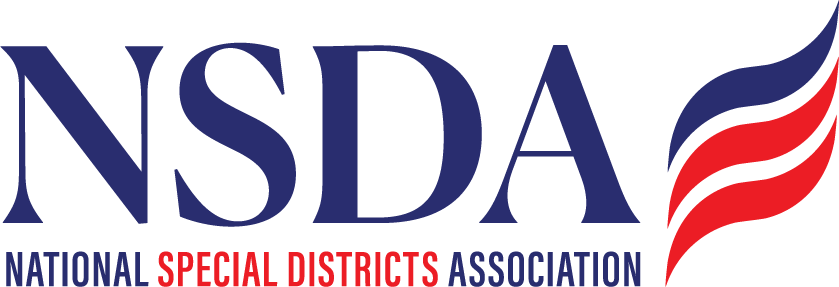Federal Legislative Update - Week of September 29, 2025
House and Senate Action
House
The House was initially set to return to action this week, but Speaker Mike Johnson (R-LA) has cancelled votes.
Senate
The Senate will continue work on the annual defense authorization bill and the nomination of Rep. Mike Waltz to serve as U.S. Representative to the UN General Assembly. The chamber is also expected to vote on a bill (S. 2806) from Sen. Ron Johnson (R-WI) that would provide automatic continuing appropriations to avoid shutdowns.
Federal Government Shutdown Likely as Deadline Nears
With no funding deal in sight, the federal government is set to shut down on October 1. Aside from a meeting scheduled today between congressional leaders and President Trump, there has been little movement in negotiations, and a shutdown now appears increasingly inevitable.
For their part, Republicans have continued to push for a short-term extension of current funding for all federal programs paired with additional security funding for public officials. Democrats, however, have insisted that any stopgap measure include provisions that would permanently extend Affordable Care Act (ACA) premium tax credits, roll back the Medicaid cuts enacted earlier this summer, and restore previously approved federal funds that the administration has attempted to rescind or withhold. They are also seeking additional security resources.
Although some moderate Republicans have signaled a willingness to extend the enhanced ACA subsidies, GOP leaders have resisted including major policy changes in a temporary funding bill. The conference itself is divided, with some conservatives advocating to scale back the subsidies and others pushing to allow them to expire altogether.
With both sides dug in, House Republican leaders canceled votes earlier this week that had previously been scheduled for September 29 and 30, further complicating negotiations and leaving the Senate under pressure to act on the House-passed CR before the deadline. Reaching the 60-vote threshold in the Senate will require Democratic support, but without bipartisan agreement, the path forward remains uncertain.
In the meantime, the White House has instructed federal agencies to prepare for a shutdown. The Office of Management and Budget recently told agencies to ready plans for standard furloughs and, in some cases, permanent staff reductions through “reduction in force” notices. Programs deemed inconsistent with the president’s priorities and lacking an alternative funding source could face elimination if funding lapses on October 1, though essential services such as Social Security, Medicare, veterans benefits, and air traffic control would continue.
If no deal is reached, this would mark the first shutdown since late 2018, which lasted a record 35 days. Given today’s stalemate and deep partisan divisions, it is unclear how long a new shutdown might last or what it would take to bring it to an end.
Shutdown Impacts on Special Districts
The immediate impact on special districts is expected to be limited, but consequences will deepen if a shutdown stretches beyond a few weeks.
Federal employees will feel the most direct effects, with many furloughed and others – such as those in public safety – continuing to work without pay. Contractors supporting federal programs generally do not receive compensation for lost work, and active-duty troops would continue reporting but see paychecks delayed until a funding deal is reached.
For special districts, the greatest risks come from indirect impacts if federal agency partners scale back operations. Delays in processing grant reimbursements, reviewing applications, or approving new projects could disrupt financing for water, wastewater, transit, housing, and other infrastructure initiatives. Districts administering or partnering in federally funded programs may also need to tap into state backfills or local resources to sustain operations.
Shutdowns may also slow permitting, planning, and infrastructure approvals, affecting projects that rely on coordination with agencies such as the U.S. Forest Service, FEMA, USDA, the Department of Transportation, and others.
Sens. Padilla, Sheehy Introduce Bill to Strengthen Forest Conservation
Senators Alex Padilla (D-CA) and Tim Sheehy (R-MT) recently introduced bipartisan legislation – the Forest Legacy Management Flexibility Act (S. 2566) – that aims to strengthen forest conservation and reduce wildfire risks. Specifically, S. 2566 would allow states to designate accredited nonprofit land trusts to manage conservation easements purchased with federal funding through the U.S. Forest Service’s Forest Legacy Program (FLP).
The FLP is the nation’s largest source of federal funding for private forest conservation. Under current law, only government entities may hold conservation easements acquired through the program. Expanding this authority to nonprofit land trusts would provide landowners with more options to conserve their property, especially those hesitant to sell easements directly to federal or state governments.
For special districts, the proposal may help broaden opportunities to partner with nonprofit land trusts on conservation and wildfire mitigation efforts, especially for fire protection, water, and resource management districts.
A companion bill has been introduced in the House by Representatives John Garamendi (D-CA) and Ken Calvert (R-CA).
A one-pager on the Forest Legacy Management Flexibility Act is available here.
Bipartisan Bill Would Expand Water Infrastructure Funding Tools
Last week, Reps. Vince Fong (R-CA) and Chris Pappas (D-NH) introduced bipartisan legislation (H.R. 5513) – the Water Infrastructure Resiliency Act – that would expand the Clean Water State Revolving Fund (CWSRF) program. The bill would make clear in federal law that modern water management technologies – such as leak detection systems, advanced monitoring software, and real-time data dashboards – are eligible for additional subsidization, including grants, principal forgiveness, and negative interest loans.
For special districts that manage water, wastewater, and stormwater systems, this change could help lower project costs, improve operational efficiency, and strengthen conservation and drought-response strategies. By explicitly authorizing these tools under the CWSRF, the bill would also give districts greater certainty in planning long-term infrastructure investments.
